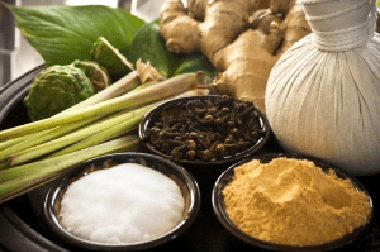Phytotherapy >>>> Plants that stimulate the enzymatic activity of the gastrointestinal tract
Plants that stimulate the enzymatic activity of the gastrointestinal tract.

Digestion is one of the main stages in the life of the human body. Insufficient action of enzymes released at the time of digestion leads to disturbances not only of metabolic processes, when at the stage of digestion part of the nutrients remains undigested and is evacuated from the gastrointestinal tract, bypassing the process of absorption into the intestinal walls. Insufficiency of enzymatic activity leads to dyspeptic disorders, colitis and disorders of the general condition of the body due to the development of stagnant phenomena in the intestine and the initiation of intoxication processes as a result of decay of undigested food components.
Enzymatic activity is as important as any other function of the body, as it determines the degree of human health. In medicine, there are a number of medicinal plants that improve digestion, but along with them there is a number of plant foods that stimulate the activity of the digestive system and enhance the production of enzymes.
The actions of plants that stimulate enzymatic activity can be conditionally divided into choleretic (enhancing liver secretion), stimulating increased secretion of gastric juice and supplementing the secretion of pancreatic enzymes.
Choleretic agents and agents that increase the release of acid into the stomach are bitterness, on the action of which the stimulation of the secretion of the hormone gastrin is built. Plants with this effect are quite common both in the field of herbal medicine (in the form of medicinal infusions) and in cooking (in the form of spices).
As medicinal herbal preparations with bitterness, improving and stimulating enzymatic activity, in the form of infusions are used:
- Marsh calamus (rhizomes),
- Medicinal wormwood (leaves),
- Dandelion medicinal (leaves and stems),
- Lovage (roots),
- Oregano ordinary - Oregano (aerial part of the plant),
- Nettle (young leaves),
- Melissa officinalis (aerial part of the plant).
Plants are used as food components that improve taste and stimulate the secretion of enzymes: tarragon, rosemary, savory, thyme, arugula, watercress, celery, chervil, horseradish, katran (roots), rue, salad mustard, milk thistle, bell pepper, wild garlic , cumin.
Plants that ferment food like proteolytic enzymes:
- Pineapple - green fruit (contains bromelain),
- Papaya, bananas, pineapple, mango (contains papain),
- Avocado, cereal and legume seeds (contains plant lipase).
Herbal products that have undergone bacterial fermentation and improve digestion:
- Sauerkraut,
- Pickled apples,
- Kvass,
- Tea mushroom.
It is important to take into account that some medicinal and food plants that improve the secretion of digestive enzymes have a detrimental effect on the state of the gastrointestinal tract in a number of diseases: gastritis, gastric and duodenal ulcers, irritable bowel syndrome, interstitial colitis and gastrointestinal diseases, accompanied by inflammatory processes in the mucous membrane lining the inside of the walls of the stomach and intestines. For this reason, plants that stimulate digestive activity are used only in cases that exclude the presence of the above diseases.

Read

Read



























